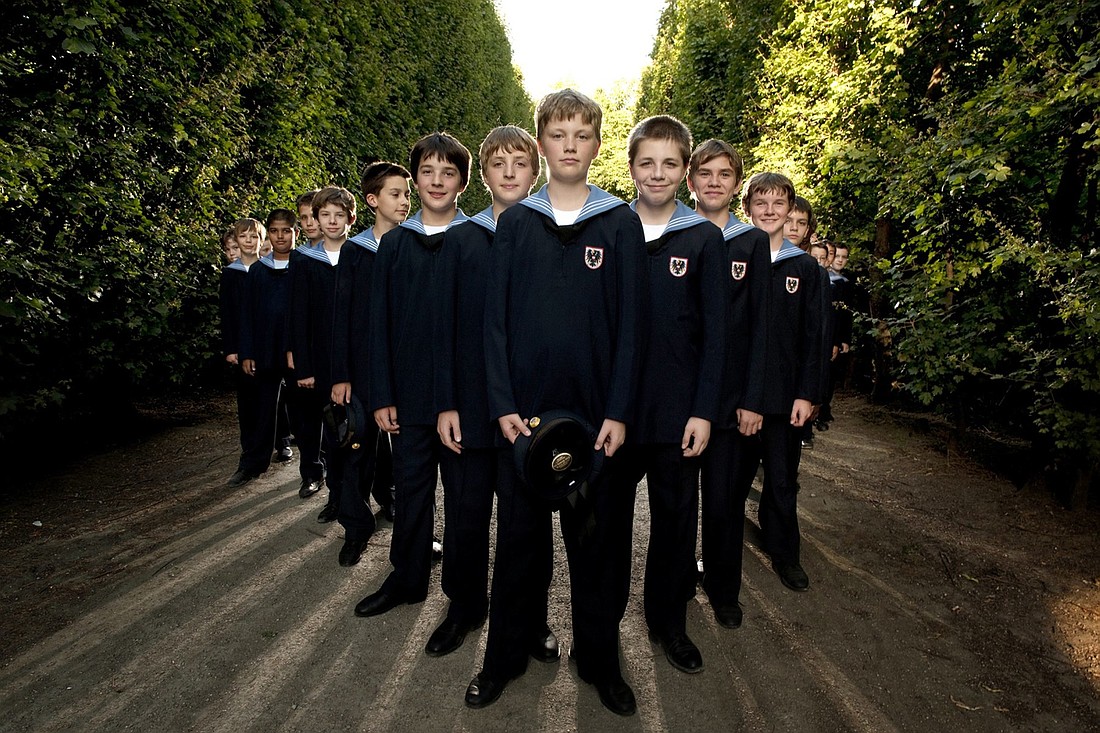- November 27, 2024
-
-
Loading

Loading

The Great Performer Series, formerly known as the Sarasota Concert Association, presented the Vienna Boys Choir recently at the Van Wezel, and the evening showed us how when art becomes frozen in time, standards and quality can slip.
The Hapsburgs created this illustrious group as a private choir until 1918, when it went, so to speak, public. Since then, these talented young boys have been touring the world, and these days the 100 members of the group give about 300 concerts a year in four different touring ensembles. Unfortunately, the group that arrived in Sarasota was either the fourth in ascendance or this formerly grand ensemble has let its standards slide.
This is not to say the boys aren’t talented. They seem to be excellent musicians with fine young voices, and I’m sure their school gives them some excellent training. The kids are not to be blamed. They didn’t do the programming — which spoke down to our audience — and, although I’m sure they fairly ooze talent on their own, they can do just so much without inspired leadership.
Throughout the program, from Buxtehude to insipid arrangements of Broadway and movie Americana, they looked positively bored, scratching, swaying and looking as if they wanted to be anywhere but where they were. Their mood was infectious, and more than a third of the audience left at intermission.
In the first half, the music was more of what we expected, although it was sung sloppily with little attention paid to pitch, entrances or diction. We heard a trio of early church works by Buxtehude, Gallus and Caldara that was pleasantly but blandly performed. Their “Simply Classical/Choral Classics” section was probably the best on the program, featuring a lovely setting by Heinrich Werner of Goethe’s “Heidenroeslein.” Made famous in the Schubert setting, this was a fetching change of pace. Also in this group was the German setting of “Lift Thine Eyes” from Mendelssohn’s “Elijah,” which had some intonation problems but was more together than some of the other pieces. The first half ended with the youngsters singing the opening measures from Orff’s “Carmina burana.” Written for adults, “O Fortuna” actually worked well with the kids (who usually don’t make an appearance until much later in the score) and was clean and crisp.
From then on, it was all downhill, as if the choirmaster, Oliver Stech (or whoever did the programming), thought Floridians wouldn’t know the difference. From the group of international folk songs through the film music (including a sloppy, in rhythm and pitch, performance of a piece from “Sister Act” that was so unstylistic it was almost laughable), the program was interminable. Even the three Johann Strauss Jr. pieces were spiritless and dreary. Perhaps the kids were worn out by then. Adolescent lackluster ran amok, but I still don’t blame the youngsters.
I blame the leaders of this once-inspiring ensemble for turning them from angels to automatons. Talented kids cannot be humdrum on their own. It takes dreary teachers. It takes a lack of discipline and an attitude of “phoning it in” and underestimating their audiences to turn talented youngsters into robots. How disappointing and what a shame!